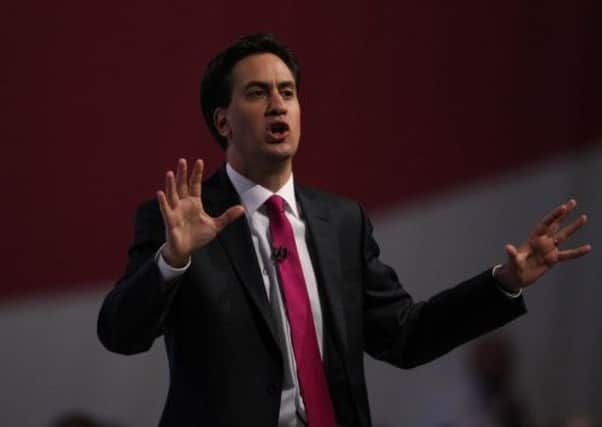David Maddox: Bank links may haunt Ed Miliband


This seems to be the only lesson that can be drawn from the extraordinary saga around the woes of the Co-op Bank and its disgraced former chairman, the Rev Paul Flowers.
What has become very clear is that Labour, its leader Ed Miliband and even possibly its shadow chancellor, Ed Balls, were far too close to the Co-op Bank and the Rev Flowers, the now suspended Methodist minister who was arrested last week after being filmed allegedly buying cocaine. The same Rev Flowers who was giving advice on banking to the Labour Party.
Advertisement
Hide AdAdvertisement
Hide AdYou would have thought that two men – Miliband and Balls – who got their fingers burned badly in the Treasury by getting too close to bankers such as former Royal Bank of Scotland chief executive Fred Goodwin, even giving him a knighthood, would have known better than to cosy up to another banker.
But maybe with Co-op they felt safe. After all, it was supposed to be the ethical bank in a sector full of sharks and the Rev Flowers may have got into trouble downloading adult material on his Bradford City Council laptop, but he was not actually a banker, so what could go wrong?
What the whole story highlights is how perilously close politicians remain to people who control money and banks in particular.
Inevitably, the Conservatives – led by Prime Minister David Cameron and Chancellor George Osborne – have tried to capitalise on the scandal and embarrass Messrs Miliband and Balls and Labour over their links to the Co-op Bank.
But there is a danger here for the Tories, and any political party that rushes in as first to throw stones. The rocks always seem to bounce back and inflict damage on them at some point.
Last week, Miliband was able to read out a list of potentially compromising links the Conservatives have with the rich, the powerful and financiers. There is after all a trial going on involving Cameron’s former head of communications in Downing Street, Andrew Coulson, and his friend the former chief executive of News International, Rebekah Brooks.
But with banks we only have to look back 20 years for a senior Labour figure, the late Robin Cook, raising questions about how the Conservatives were given a £16 million overdraft limit by RBS, despite having an annual income of only £8m.
Attacks on parties and their sources of finance have the double effect of embarrassing them publicly and cutting off the money, so are very attractive.
In 1993, things were beginning to slip for then party leader John Major and the Tories, maybe the same might be true in 2013 for Ed Miliband and Labour.